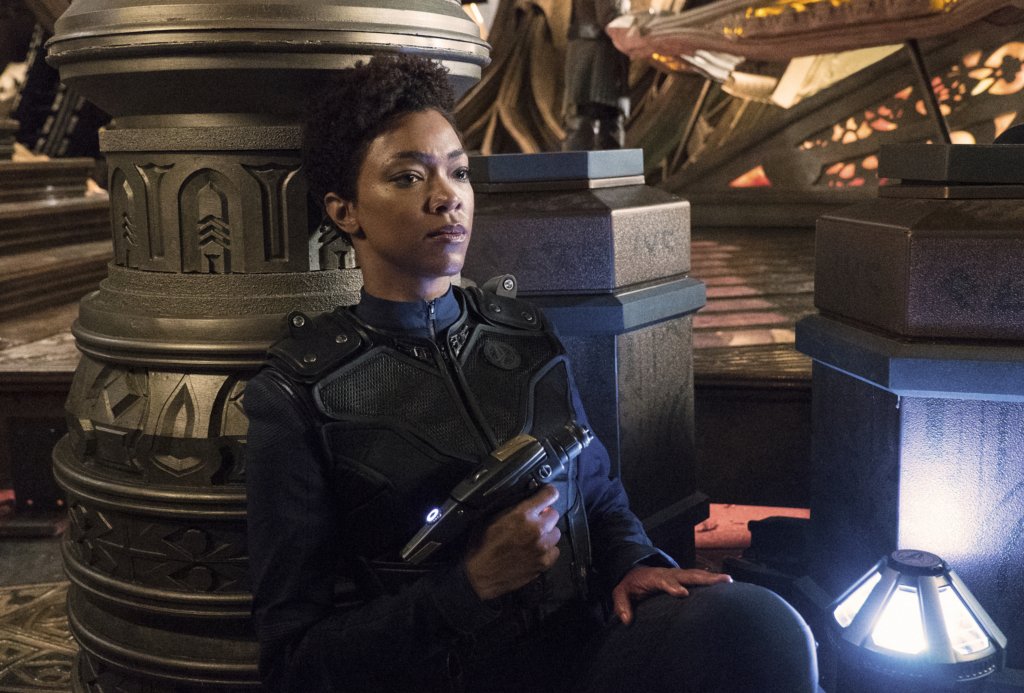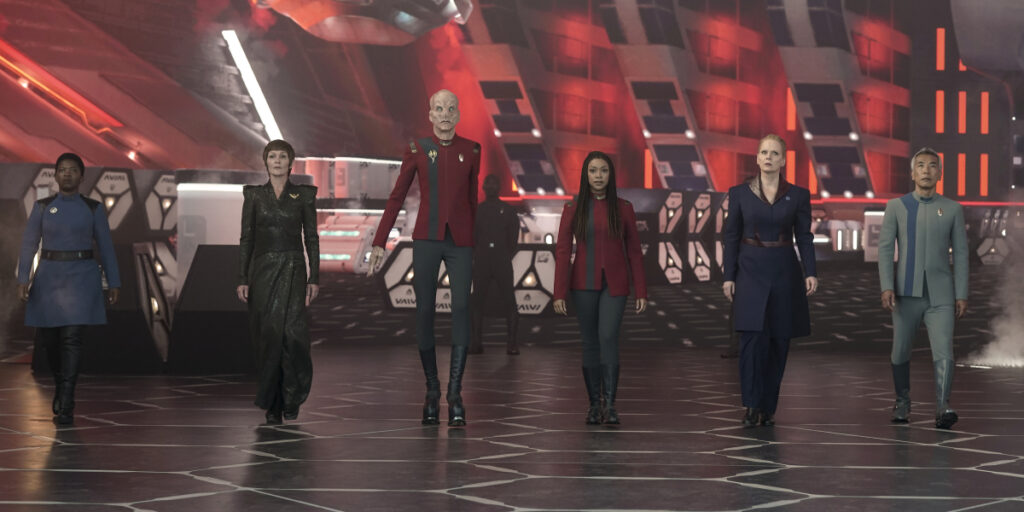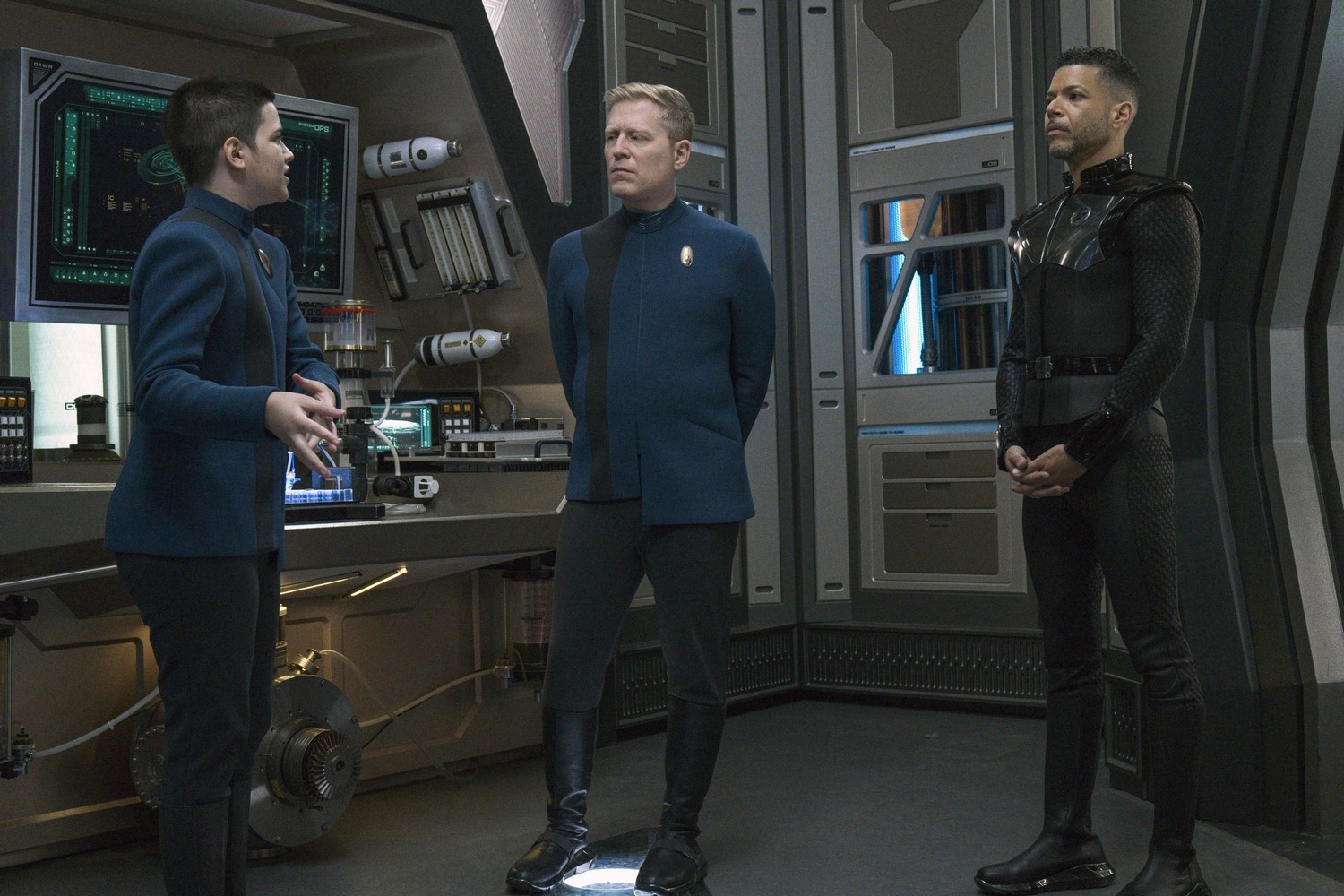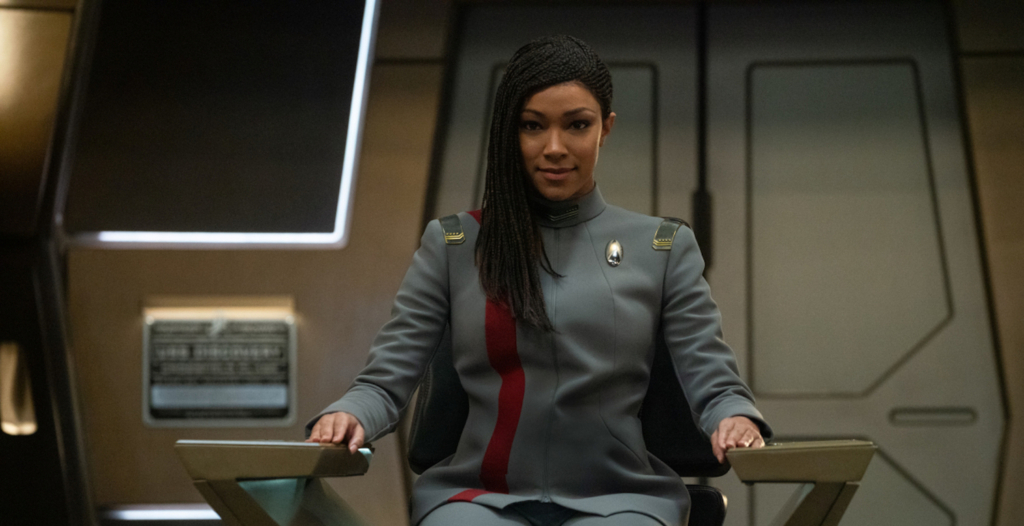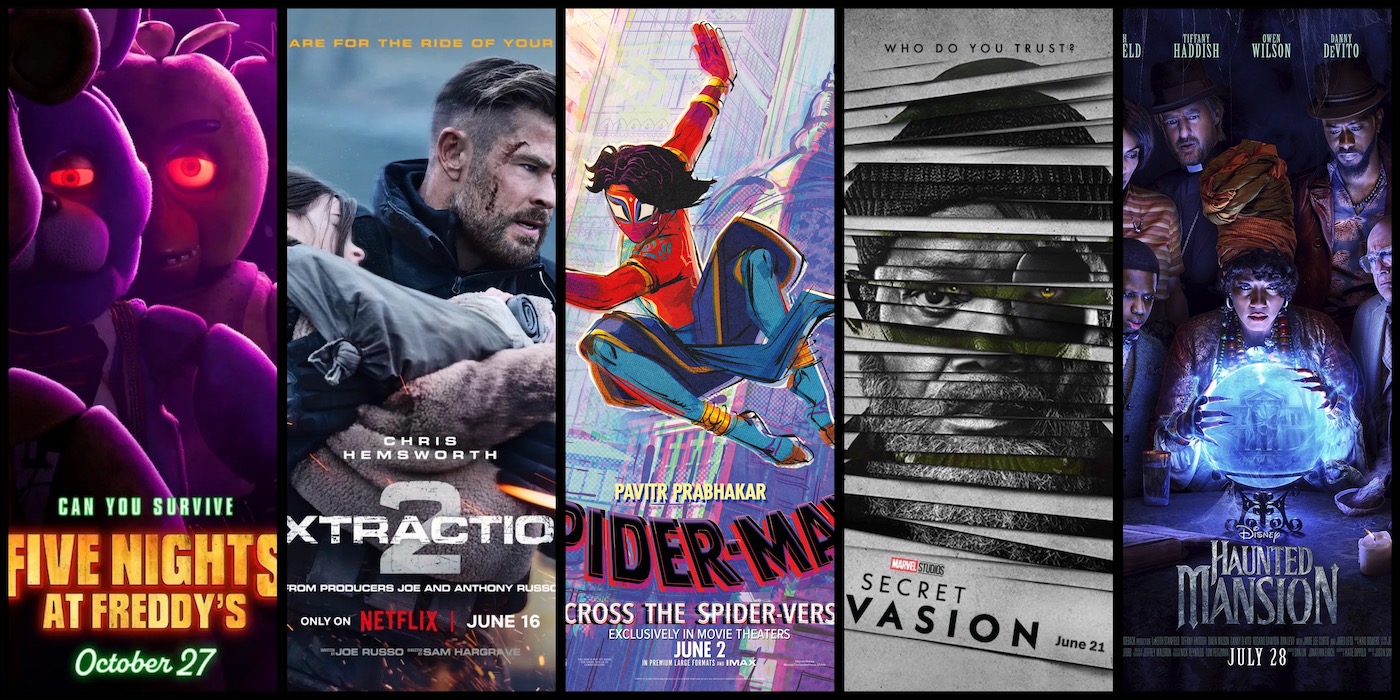Of Course ‘Star Trek: Discovery’ is a Success


With only one season left, everyone wants to weigh in on the impact of Star Trek: Discovery? Is it a “success”? Yes, of course it is.
This morning I read “Star Trek: Discovery was anything but ‘successful’ during its run,” an article from Red Shirts Always Die. There’s not a lot of Star Trek: Discovery news at the moment as the show’s fifth and final season will not air until 2024. As a result, this article will likely filter towards the top. It did for me.
That’s frustrating because the fundamental conceit of the article seems founded on personal taste rather than real-world impact. And the writer gives up the game over what drives them almost immediately:
“Now, I don’t like telling people they can’t like something,” they write. “If you like Discovery, bully for you. No shame in that. I too have liked things that were objectively bad and or disappointing.”
“Objectively bad” is not a thing. You can say DISCO is bad because “all my homies hate DISCO“. You can say whatever you want! But that doesn’t make an opinion objectively true. To use opinion as a foundation for why Star Trek: Discovery is not a success is, simply, a faulty premise.
If you read my Star Trek reviews, you know I am critical of all Star Trek shows, DISCO included. But that’s not a metric for success. With one season left, let’s talk about why Star Trek: Discovery is already a success story.
Star Trek: Discovery Beats the Odds
Let’s step back in time, shall we? Do we all remember the state of Star Trek (and of television in general) in 2017? The Kelvin Universe Star Trek movies are beginning to flag their box office success. There’s been Star Trek on TV since 2005. And CBS has just announced they are entering the streaming game with their own platform. And what’s to be the flagship series for this new streaming service?
Star Trek: Discovery.
This represents the first time a Star Trek series premieres on a streaming platform only. With little else new to recommend the then-named CBS All Access, long-time Trekkies came in hot. Pay for Star Trek? After decades of it always being on basic cable and essentially free? No way! Remember, at this point, the only real names in the streaming game are Netflix and Amazon Prime. The idea of paying for more streaming in 2017 sounds ridiculous. How things change.
And the other challenge DISCO has to overcome is the quickly-changing face of online media criticism. In 2016, the all-women Ghostbusters movie finds itself at the genesis of the so-called “anti-woke” movement. Women in my Ghostbusters? Next thing you’ll be telling me I have to pay for Star Trek!
DISCO, along with Star Wars: Episode VIII – The Last Jedi and Jodie Whittaker on Doctor Who become a lightning rod for angry Youtubers. And there’s money in that echo chamber of angry, predominantly-white nerds, so it grows quickly.
Even before Star Trek: Discovery airs its first episode, it faces a steep incline of controversy. And yet it perseveres.
Prequel, Not Legacy
In 2023, “Legacy” is the watchword. Star Trek: Legacy is a series that may or may not come to pass and continue what Star Trek: Picard laid out in its third and final season. We can’t know the future, but we do know the past. And there’s no “legacy” without furtive, first steps.
Star Trek: Discovery may be a show’s first set in the pre-Kirk days, however, it is a show largely unburdened by legacy. This is a show focusing on new characters with new ship and uniform designs that envisions familiar species and ideas in new ways. There can be no trip down memory lane without first proving Star Trek can stand on its own two feet first.
In fact, because DISCO takes so many risks in its new approach to Star Trek, it’s in no small part the reason we get Star Trek: Picard at all. Consider that Patrick Stewart didn’t want to come back and that the prevailing understanding for why he returned is because Paramount producers agreed to take Picard in a brand new direction. That agreement simply does not happen without Star Trek: Discovery proving that the franchise can take risks and take old ideas down new avenues.
Star Trek: Discovery Spin-Offs
While we’re thinking of measurements for success in franchise TV, let’s talk about how many Star Trek shows there are post-Star Trek: Discovery. We’ve already mentioned Star Trek: Picard. There are also two animated series in the form of Star Trek: Lower Decks, and Star Trek: Prodigy.
And then there’s Star Trek: Strange New Worlds, arguably the current franchise flagship. Anson Mount starts his journey as Christopher Pike, not on SNW, but on Star Trek: Discovery. In fact, his entire character journey as a man who knows his own terrible fate happens on DISCO and because of the kind of long-form narrative storytelling that DISCO tells.
Speaking of success, Star Trek: Discovery‘s first three seasons all feature Michelle Yeoh. Before Crazy Rich Asians and way before Everything Everywhere All At Once, some casting directors saw Yeoh as an integral part of Star Trek: Discovery‘s success. Not only will Yeoh forever be a draw for people to watch and rewatch DISCO, but her success with Discovery and elsewhere else is the reason we’re getting a Section 31 movie.
Oh, and there’s a Starfleet Academy show coming, too! None of this happens if Star Trek: Discovery is not a success.
The Mission
Star Trek‘s mantra is “infinite diversity in infinite combinations”. It’s a call to see every kind of person sharing space on the bridge of a starship working together. Ira Steven Behr often says that Star Trek: Deep Space Nine came up short on queer representation. A lack of queer people on Star Trek has always been one of the franchise’s greatest failings when it comes to its mission statement.
Star Trek: Discovery has the first gay married couple in Star Trek. It also has the first non-binary and transgender actors in Star Trek. We can debate over how well those characters and stories are written, but the fact remains: DISCO did that. Stamets, Culber, Adira, Gray, and Reno form a found, queer family–the first of its kind on Star Trek. Like it or not, that is an unmitigated success of Star Trek’s mission statement.
On the most pragmatic level, Star Trek: Discovery introduces us to new alien worlds and takes us farther into the future than Star Trek has ever gone before. And while it does those things, it also gives us Sonequa Martin-Green the chance to be the first Black woman to become captain and star of a Trek show as Michael Burnham. Again, whether you like Burnham or not is dwarfed by the simple fact that DISCO succeeded where every Star Trek show before it came up short.
Of Course Star Trek: Discovery is a Success!
Individual feelings do not dictate a show’s overall success. Star Trek: Discovery‘s cancellation and rumors of budget cuts, in general, are far more a statement on the state of streaming and the cost of renegotiating contracts than anything else. How much people talk about a series on social media is one metric and not even one that guarantees success.
What we do know is this. Star Trek lead producer Alex Kurtzman cannot make Star Trek unless it is successful. On the most basic level, if the shows don’t bring in an audience then there is no Star Trek. So by that metric, how can we view Star Trek: Discovery as anything but a success when it’s ending after five seasons and with four other shows and a new movie thriving in its wake?
The legacy of the U.S.S. Discovery is something we will examine in the years and decades to come. What did it get right? What did it get wrong? I suspect that just like with Star Trek: Enterprise, there will be articles aplenty about how we didn’t appreciate what we had at the time. Discovery, much like Enterprise, faces a time in television when the landscape was rapidly changing in ways that made keeping Star Trek on the air a challenge.
What we can say for certain right now is that Star Trek: Discovery is a success. There’s more new Star Trek now than ever. The franchise succeeds in its mission statement now more than ever. Opinions on its quality will change. Examinations of its attempts at better representation will no doubt lead to us asking and expecting even more. Tomorrow is unknown and infinitely complex.
The truth of this moment, however, is simple. Star Trek: Discovery is a success. Of course, it is.
Thank goodness.

